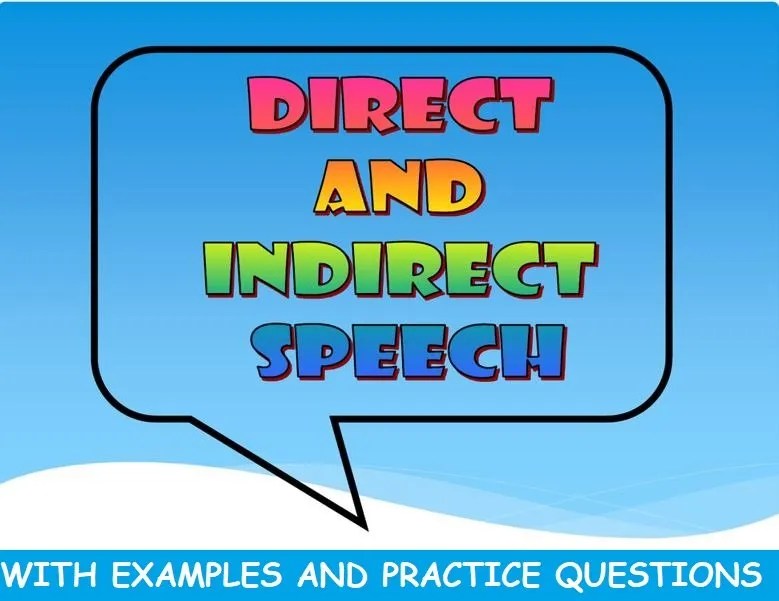
Direct and Indirect speech is a very important topic in English language because it forms part of our daily usage. One way or the other, we use directly and indirectly make use of this speech without knowing. This post will teach you on how to define a direct and indirect speech, identify the difference between direct and indirect speech, in addition, being able to perfectly answer questions on direct and indirect speech in WAEC, NECO, JAMB or any other certification.
What is a Direct Speech?
A direct speech is the exact words of the speaker. This is in the first person, that is, the person speaking at the time. There are some rules guiding direct speech. These are:
(a) It should be the exact words of the speaker.
(b) The actual words spoken and the reporting verbs are marked off or separated by quotation marks. The quotation marks could be single (like in sentence 1 below) or double (like in sentence 2 below) but one has to be consistent in using it, 1.e., the speech must be closed with the type with which one opens it.
Examples:
1.Mary said, I am going to the market.
- John said, ” I know the answer, but I won’t tell you”.
(c) The exact words of the speaker are normally introduced by a reporting verb like, ‘ replied, ‘said’, ‘remarked’ etc.
(d) The reporting verb is usually followed by a comma to separate the exact words and the reporting verb.
Direct speech is often used by story tellers because it makes a story lively and interesting.
What is an Indirect Speech?
An indirect speech, on the other hand, refers to the speech or words of a speaker as reported by someone else. In indirect speech, the actual or the original speaker is now the third person while the person to whom the speech is reported becomes the second person and the person reporting what the original speaker said is the first person. Indirect speech is also referred to as: Reported Speech. The rules guiding indirect speech are
(a) The quotation or inverted commas are no longer in use in indirect or reported speech.
(b) The main verb changes from present to past tense, future tense becomes future in the past.
Examples:
(1) Direct Speech: Olu said, “I am not feeling well.”
(2) Indirect Speech: Olu said that he was not feeling well.
1) Direct Speech: I will go to Lagos tomorrow,” said Tunde.
2) Indirect Speech: Tunde said that he would go to Lagos tomorrow
(c) A statement that is universal or that is of general truth retains its form without any change or the verb. Ihis is because truth, generally accepted as the truth, 1s always true at all times.
Examples:
(1) Direct Speech: The Geography teacher said, “T he world is spherical.
(2) Indirect Speech: The Geography teacher said that the world is spherical.
(1) Direct Speech: The carpenter said, ” A table has tour legs.”
(2) Indirect Speech: The carpenter said that a table has four legs.
(d) Statements or sentences expressed in past perfect tense retain their tenses.
Example
1) Indirect Speech: Mary said that the train had left the station before she got there.
2) Direct Speech: Mary said, ” The train had left the station before I got there.”
Practice Questions
Change the following direct speeches to indirect speeches.
- Kunle said, I’ m playing tennis.
- The principal said, ‘I’m asking you a question.
- 3.The poor child said, I want to buy some pencils.
- I said, I shall see you on Thursday
- John said we shall be late.”
- John said, I read the book a long time ago.
- 7.The student said, ‘I had a new exercise-book ages ago.
- Taiwo said, ‘I haven’t seen him for three days.
- Can you drive a car?” The man asked.
- The policeman asked, Are there many accidents on the roads?’
Having gone through the questions and being able to correctly answer them, then you are good to go. It is always advised that you practice past questions on direct and indirect speech as it is one of the commonly asked questions.



